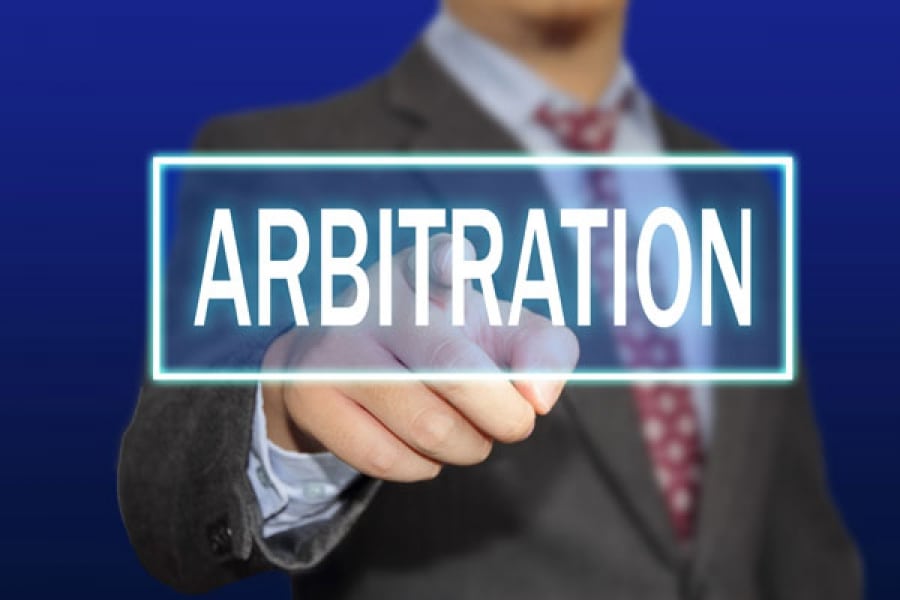Editor’s note: This article describes a hypothetical situation.
Bob has studied the rules of various arbitration providers. He knows an effective advocate chooses the arbitration forum that offers the rules best suited for the particular controversy. So, for instance, “If you want depositions, why not pick an arbitration forum whose rules expressly allow depositions?” Always the riddler, Bob put this question on his office wall.
Bob soon had a chance to put words into action. His client was involved in a messy business dispute that spilled over into a contentious litigation. Using his code words—more expeditious, more cost-effective, and confidential—Bob convinced the other side to arbitrate the dispute. The parties asked the court to enter an agreed order sending the case to arbitration.
Bob needed a couple depositions to prove his case. He drafted an arbitration agreement that identified ABC Arbitration Co. as the arbitration provider: “The parties agree that all disputes at issue in the current litigation shall be settled by arbitration administered exclusively by ABC Arbitration Co. Judgment on the award rendered by the arbitrator may be entered in any court having jurisdiction thereof.”
Why ABC? Because its rules stated, “Each party may take two depositions of an adverse party.” Deposition problem solved. Another example of brilliant drafting that anticipated and resolved a potential snare.
There was one problem: ABC Arbitration did not exist. Bob and his adversary could not find ABC’s offices, website or anything having to do with ABC. “No matter,” Bob assured his client. “The parties can select another arbitration provider and can proceed with the desired arbitration.”
Except that Bob two days later received his adversary’s motion to vacate the stipulation and order that directed the parties to arbitration in the first place. His adversary’s argument was simple. The arbitration provision identifies ABC as the arbitral forum; ABC does not exist and cannot arbitrate the dispute; consequently, the parties cannot arbitrate their dispute in accordance with the arbitration clause.
Must the parties now return to court or can Bob salvage the arbitration?
Section 5 of the Federal Arbitration Act states: “If in the agreement provision be made for a method of naming or appointing an arbitrator or arbitrators or an umpire, such method shall be followed; but if no method be provided therein, or if a method be provided and any party thereto shall fail to avail himself of such method, or if for any other reason there shall be a lapse in the naming of an arbitrator or arbitrators or umpire, or in filling a vacancy, then upon the application of either party to the controversy the court shall designate and appoint an arbitrator or arbitrators or umpire, as the case may require, who shall act under the said agreement with the same force and effect as if he or they had been specifically named therein; and unless otherwise provided in the agreement the arbitration shall be by a single arbitrator.”
How do courts determine whether the process for naming an arbitrator “lapses”? If the provision says the designated forum is the “exclusive” arbitral forum, there is a lapse and the court will not enforce the arbitration provision.
“If a designated arbitrator is unavailable, Section 5 of the FAA permits a court to appoint a substitute arbitrator in certain circumstances. Our court of appeals has not addressed the precise set of circumstances in which a court may appoint a substitute arbitrator, but other federal courts have held that Section 5 of the FAA generally permits a court to appoint a substitute arbitrator where the chosen arbitrator is unavailable, unless the selection of an arbitrator is ‘integral’ to the arbitration agreement, as opposed to an ‘ancillary logistical concern,'” the court wrote in Clerk v. Cash Central of Utah LLC, 2011 U.S. Dist. LEXIS 95494, at *13-*14 (E.D. Pa. Aug. 25, 2011).
How does one determine if the selection of the arbitrator is “integral” to the arbitration agreement? The court in Clerk said, “An arbitral forum is an integral part of an arbitration agreement if the agreement includes an express statement designating a particular arbitral forum to administer arbitration.” The Pennsylvania Superior Court agreed in Stewart v. GGNSC-Canonsburg, 9 A.3d 215, 219 (Pa. Super. 2010): “At a minimum, for the selection of an arbitrator to be deemed ‘integral,’ the arbitration clause must include an ‘express statement’ designating a specific arbitrator.” In Khan v. Dell, 669 F.3d 350 (3d Cir. 2012), however, the U.S. Court of Appeals for the Third Circuit reversed the rule. It said the choice of forum is an integral part of the agreement to arbitrate only if “the parties … have unambiguously expressed their intent not to arbitrate their disputes in the event that the designated arbitral forum is unavailable.” So what is an arbitration-contract drafter to do?
- The drafter should decide whether this is an “all or nothing” situation. Is the chosen arbitral forum the only acceptable forum? If so, the drafter should expressly say the forum is “exclusive.” Did Bob consider this issue? No. Would a forum other than ABC Arbitration have worked for Bob? Probably. Did Bob’s arbitration provision achieve his avowed goal? No.
- If another provider can substitute for the chosen arbitral provider, the drafter should make sure to avoid saying—expressly or impliedly—that the chosen provider is “exclusive.” Did Bob say the chosen provider was “exclusive”? Yes: “The arbitration [must be] administered exclusively by ABC Arbitration Co.” Did Bob really mean that? Nope. Did he consider the consequences of this language? Nope.
Could Bob have gotten his cake and eaten it too by ensuring that the parties go to and stay in arbitration even if the designated provider is not available? You bet. As Bob often tells anyone who will listen, “You first have to decide what you want to achieve in arbitration; you then use the language to get there.” Bob failed on both fronts. He is not going “there.”

